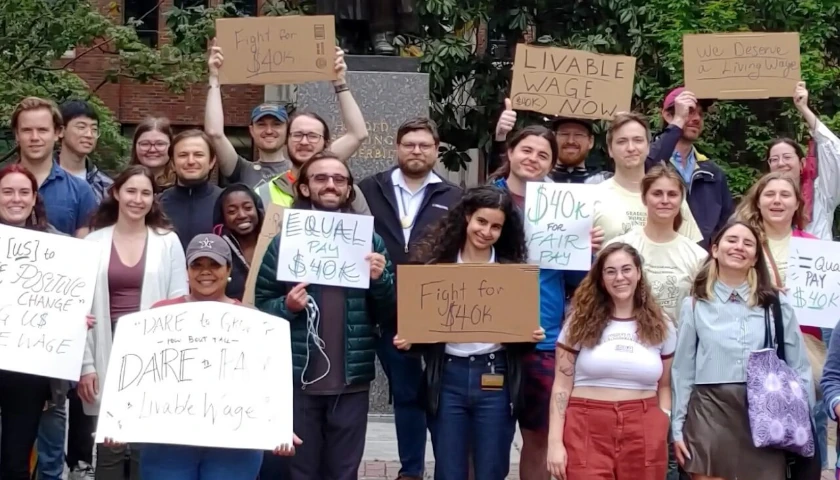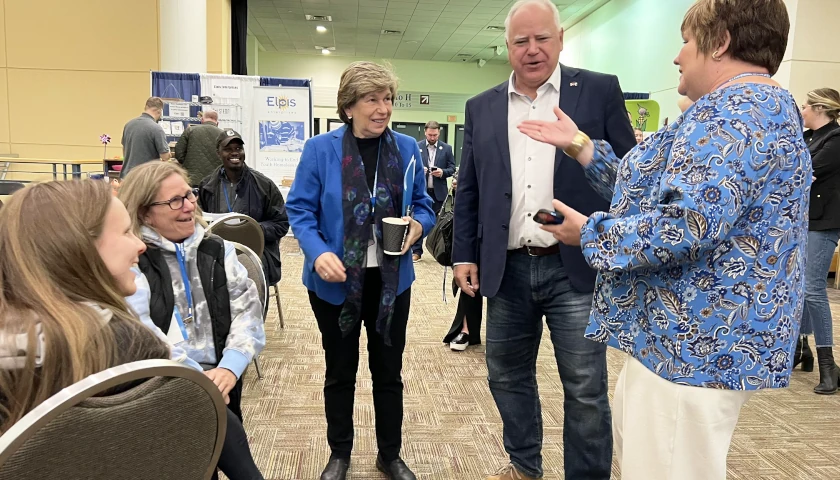An expected U.S. Supreme Court decision, will change the political landscape. And unions are desperately trying to hold on to their political power after Janus v. American Federation of State, County and Municipal Employees is ruled on, the political landscape may very well change.
Steven Greenhut suggests, on the laudable side, “some unions have talked about revamping their organizations to better cater to the needs of their members.” We support that.
Unfortunately “the nation’s public-sector unions are trying a variety of tactics – some laudable, others sleazy – to maintain their large ranks of dues-paying members and massive war chests,” says Greenhut. For those of us in the trenches, we have known that for years.
Troubling and desperate union tactics prompts Greenhut to discuss the union’s blatant efforts to circumvent Janus. “Government union employees across the country have received a new ‘membership application’ that locks workers into paying union dues well into the future – even if they later resign from the union or are no longer required to belong. The fine print is buried deep within the application: “If I resign my union membership and the law no longer requires nonmembers to pay a fair share fee, I nevertheless agree voluntarily to contribute my fair share by paying a monthly service fee in an amount equal to monthly dues.” This is a preemptive and obvious effort to counter the very protections provided for by the anticipated Janus decision.
The efforts to trap members does not end there. In Tennessee, the National Education Association and their state affiliate the Tennessee Education Association continue to put roadblocks in place to prevent their members from exercising their freedom of association. Often they will use any legal means at their disposal to combat members who want to resign. Take, for example, the difficulty in terminating automatic drafts to pay membership dues. Unions often place a narrow window of opportunity for employees to drop union membership and escape the requirement of paying union dues or fees. For educators, that date may be limited to summer months and are designed to be inconveniently timed for members. In addition, unions blatantly will contribute to political candidates. The membership application is here.
Hard to Resign
- “I agree that my membership in NEA, TEA, and my Local Association is continuing and shall automatically renew annually unless I provide written notice of termination to TEA. I acknowledge that the membership year runs from September 1 to August 31 and that notice of termination must be received by TEA prior to September 1 to be effective for the ensuing membership year.”
- “This authorization for payroll deduction of dues will automatically renew each year and will continue in effect until revoked in writing to the Local Association president and the business office of my employer, and revocation will be acted upon in accordance with TEA Board Policy.”
Dues Increase
- “I agree that my dues may be increased by some amount each school year as determined by the NEA, TEA, or my Local Association, respectively, and I agree to pay those increased dues without necessity of an additional authorization. If I selected Payroll Deduction as my method of payment, I authorize the local Board of Education or other employer to deduct from my paycheck, in regular installments, annual dues as reflected above, including any annual increase.”
- “In the event of separation prior to final payment, I direct the remaining balance to be deducted from my last paycheck.”
Teacher Union Politics
- “The NEA Fund for Children and Public Education (NEA Fund) collects voluntary contributions from Association members which are used for political purposes, including, but not limited to, making contributions to and expenditures on behalf of friends of public education who are candidates for federal office. The local and state association political action committee performs similarly with local and state elections.”
- “A portion of your dues shall be allocated to the TEA-FCPE. Members who do not wish to contribute to the TEA-FCPE may request this portion of their dues be allocated to general GR activities.”
– – –
JC Bowman is the Executive Director of Professional Educators of Tennessee. Professional Educators of Tennessee is a non-partisan teacher association headquartered in Nashville, Tennessee. Permission to reprint in whole or in part is hereby granted, provided that the author and the association are properly cited.






Mr. Bowman, Thank you for continuing to shine a light upon the outrageous TEA/NEA agreements. Who in their right mind would agree to belong to such organizations is beyond my comprehension. What is the reasoning for joining the TEA?